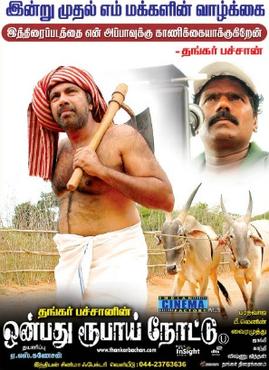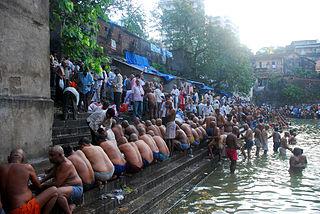
The Mid Day Meal Scheme is a school meal programme in India designed to better the nutritional standing of school-age children nationwide. The scheme has been renamed as POSHAN Scheme. The programme supplies free lunches on working days for children in government primary and upper primary schools, government aided Anganwadis, Madarsa and Maqtabs. Serving 120 million children in over 1.27 million schools and Education Guarantee Scheme centres, the Midday Meal Scheme is the largest of its kind in the world.
Infosys Foundation is a non-profit organisation based in Karnataka, India, established in 1996 by Infosys to support the underprivileged sections of society. It supports programs in the areas of education, rural development, healthcare, arts and culture, and destitute care in remote regions of India. The foundation is solely funded by Infosys, and no external donations are accepted. The foundation is headed by Sudha Murty.

A school meal is a meal provided to students and sometimes teachers at a school, typically in the middle or beginning of the school day. Countries around the world offer various kinds of school meal programs, and altogether, these are among the world's largest social safety nets. An estimated 380 million school children around the world receive meals at their respective schools. The extent of school feeding coverage varies from country to country, and as of 2020, the aggregate coverage rate worldwide is estimated to be 27%.

The Mavalli Tiffin Rooms is the brand name of a food-related enterprise in India. Having its origin as a humble mess located on Lalbagh Road in Bangalore, it has ten other branches in Bangalore, as well as one in each of Udupi, Mysore, Singapore, Kuala Lumpur, London and Dubai. MTR created the South Indian breakfast item, Rava Idli. While the packaged foods division was acquired by Orkla of Norway, the MTR chain of restaurants continues to be run by the original family that started it.

Asin Thottumkal, known mononymously as Asin, is a Indian former actress who appeared predominantly in Tamil, Hindi and Telugu films. She is a trained Bharatanatyam dancer. She has received three Filmfare Awards. She began her acting career in the South Indian film industry, but later shifted her focus to Bollywood. She speaks eight languages.

Golu is the festive display of dolls and figurines in South India during the autumn festive season, particularly around the multiday Navaratri festival of Hinduism. These displays are typically thematic, narrating a legend from a Hindu text to court life, weddings, everyday scenes, and miniature kitchen utensils. They are also known as golu, Gombe Habba, Bommai golu, or Bommala Koluvu.

Dubai Seenu is a 2007 Indian Telugu-language action comedy film directed by Srinu Vaitla. Produced by D. V. V. Danayya, the film stars Ravi Teja and Nayanthara. It has music composed by Mani Sharma.

Onbadhu Roobai Nottu is a 2007 Tamil-language drama film directed by Thangar Bachan, based on Bachan's own same-titled novel. It depicts the tragic life and fall of Madhava Padayachi, a simple villager, played by Sathyaraj, and his family. Also starring Archana, Nassar and Rohini in supporting roles, the film was released on 30 November 2007 to high critical acclaim and was praised as one of the best movies in Tamil cinema.

Rani Velu Nachiyar was a queen of Sivaganga estate from c. 1780–1790. She was the first Indian queen to wage war with the East India Company in India. She is known by Tamils as Veeramangai. With the support of Hyder Ali's army, feudal lords, the Maruthu Brothers, Dalit commanders, and Thandavarayan Pillai, she fought the East India company.

Pitru Paksha is a 16–lunar day period in Hindu calendar when Hindus pay homage to their ancestors (Pitrs), especially through food offerings. The period is also known as Pitri Paksha/Pitr-Paksha, Pitri Pokkho, Sorah Shraddha, Kanagat, Jitiya, Mahalaya, Apara Paksha and akhadpak, Pitru Pandharavda or pitru paksh.

Prison food is the term for meals served to prisoners while incarcerated in correctional institutions. While some prisons prepare their own food, many use staff from on-site catering companies. Some prisons support the dietary requirements of specific religions, as well as vegetarianism. Prisoners will typically receive a series of standard meals per day from the prison, but in many prisons they can supplement their diets by purchasing additional foods, including snacks and desserts, at the prison commissary with money earned from working in the prison or sent by family and friends.
Female foeticide in India is the abortion of a female foetus outside of legal methods. A research by Pew Research Center based on Union government data indicates foeticide of at least 9 million females in the years 2000-2019. The research found that 86.7% of these foeticides were by Hindus, followed by Sikhs with 4.9%, and Muslims with 6.6%. The research also indicated an overall decline in preference for sons in the time period.

On 16 July 2013, at least 23 students died, and dozens more fell ill at a primary school in the village of Gandaman in the Saran district of the Indian state of Bihar after eating a Midday Meal contaminated with pesticide. Angered by the deaths and illnesses, villagers took to the streets in many parts of the district in violent protest. Subsequently, the Bihar government took a series of steps to prevent any recurrence of such incidents.

Theetta Rappai was an Indian competitive eater who used to eat enormous quantities of food. Rappai used to eat 75 idli for breakfast, buckets of rice and curries for lunch, and 60 chapatis for dinner. He is known to have eaten 250 idlis and 1.5 kg of pudding and halwa in one sitting. On a different occasion, he is known to have consumed 75 idlis, 2.5 kg appam, and buckets of payasam. Rappai had won several eating competitions in and outside Kerala. His name had been included in the Limca Book of World Records

Saundarya Rajesh is an Indian social entrepreneur who is the founder and president of Avtar Group. She is known for introducing the concept of Second Career opportunities for women in corporate India. She runs an initiative, Project Puthri to empower underprivileged girls with employment. She was awarded the ‘100 Women Achievers of India’ in 2016 by the Minister of Women and Child Development for her work. She received the Women Transforming India Award from the NITI Aayog and the United Nations in 2016. Her debut book, The 99 Day Diversity Challenge: Creating an Inclusive Workplace (2018), was published by SAGE Publishing.

Street food, as in other areas of India, are popular in Chennai, despite the common belief in India that street food is unhealthy. The idly sambhar is a popular dish, which is served as breakfast or dinner. Apart from regular South Indian street food, the city's streets are also filled with several North Indian street food outlets, most of them established by North Indian migrants themselves. Gujarati and Burmese are also available. Street food in Chennai is so popular that a game had developed based on the TV show The Amazing Race where contestants have to follow clues to street-food spots in the city.

Karam is a harvest festival celebrated in Indian states of Jharkhand, West Bengal, Bihar, Madhya Pradesh, Chhattisgarh, Assam, Odisha and Bangladesh. It is dedicated to the worship of Karam-Devta (Karam-Lord/God), the god of power, youth and youthfulness. It celebrated for good harvest and health.

A meal is an eating occasion that takes place at a certain time and includes consumption of food. The names used for specific meals in English vary, depending on the speaker's culture, the time of day, or the size of the meal.
A vegan school meal or vegan school lunch or vegan school dinner or vegan hot lunch is a vegan option provided as a school meal. The meals have become part of the menu in some public school districts. Vegan school meals most reported on by the media include those added by Los Angeles, California in 2018, Portland, Maine in 2019, and New York City in 2022. A small number of private educational facilities around the world are vegan schools and serve exclusively vegan food.